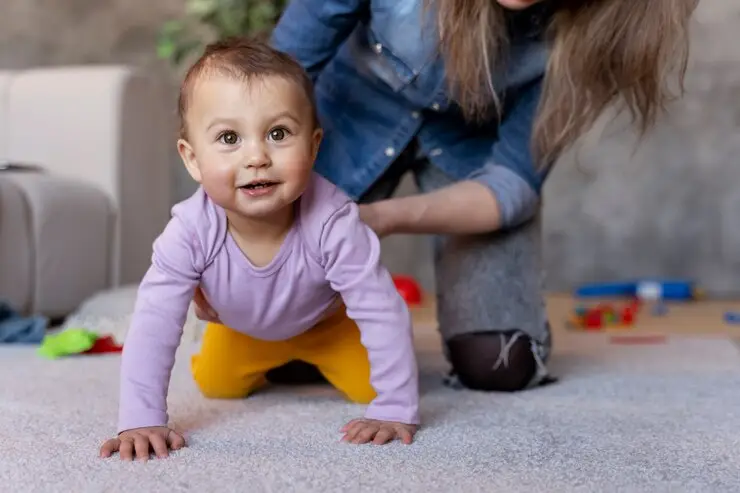Baby Development
Baby development refers to the progressive growth, milestones, and advancements that occur during the early stages of a child’s life. Here is a general overview of the different areas of baby development:
- Physical Development: Babies undergo rapid physical growth and motor skill development. They gain weight, grow in height, and develop muscle strength and control. Milestones include lifting their head, rolling over, sitting, crawling, standing, and eventually walking.
- Cognitive Development: Cognitive development involves the baby’s ability to think, learn, understand, and make sense of the world around them. Initially, they explore their environment through sensory experiences, and later they develop object permanence, memory, problem-solving skills, and the ability to imitate actions and gestures.
- Language Development: Babies start communicating through sounds, babbling, cooing, and eventually develop receptive and expressive language skills. They begin to understand simple words and gestures, and by their first birthday, they may say a few words or simple phrases.
- Social and Emotional Development: Babies form attachments and develop social and emotional connections with their caregivers. They learn to express and recognize emotions, engage in social interactions, and develop a sense of trust and security. Smiling, laughing, and responding to familiar faces are some early social milestones.
- Sensory Development: Babies’ senses develop rapidly as they explore and engage with the world. They become more responsive to sights, sounds, tastes, smells, and textures. They track objects with their eyes, respond to voices, and start reaching for objects.
- Gross and Fine Motor Skills: Gross motor skills involve large muscle movements, such as rolling, crawling, sitting, standing, and walking. Fine motor skills involve the development of hand-eye coordination, grasping objects, using fingers to explore and manipulate objects, and eventually self-feeding and self-dressing.
It’s important to note that each baby develops at their own pace, and there can be variations in the timing of milestones. The milestones mentioned above are general guidelines, and some babies may reach them earlier or later. If you have concerns about your baby’s development, it’s always advisable to consult with a healthcare professional or pediatrician. They can provide guidance, support, and monitor your baby’s progress to ensure they are meeting their developmental milestones.

